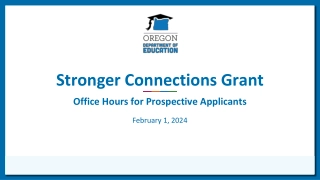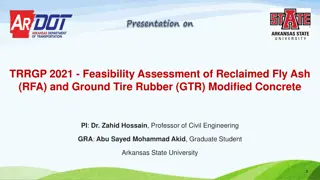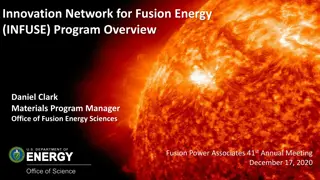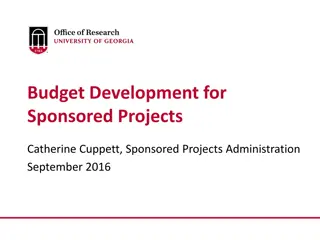
Investment in Mental Health Wellness Act Overview
"The SB 82 Investment in Mental Health Wellness Act aims to expand crisis services for individuals in mental health crisis, with objectives including reducing hospitalizations, law enforcement expenditures, and overall costs while expanding services. Learn about the funding, evaluation strategy, application process, and collaboration efforts involved in this initiative."
Download Presentation

Please find below an Image/Link to download the presentation.
The content on the website is provided AS IS for your information and personal use only. It may not be sold, licensed, or shared on other websites without obtaining consent from the author. If you encounter any issues during the download, it is possible that the publisher has removed the file from their server.
You are allowed to download the files provided on this website for personal or commercial use, subject to the condition that they are used lawfully. All files are the property of their respective owners.
The content on the website is provided AS IS for your information and personal use only. It may not be sold, licensed, or shared on other websites without obtaining consent from the author.
E N D
Presentation Transcript
SB 82 Investment in Mental Health Wellness Act March 22, 2018 Norma Pate, Deputy Director Tom Orrock, Chief of Commission Operations and Grants Kristal Antonicelli, RFA Project Lead
SB 82: Investment in Mental Health Wellness Act (2013) A competitive grant process that expands crisis services for individuals experiencing a mental health crisis $32 million per year over the course of the grants Objectives include: Reduce hospitalizations Reduce expenditures of law enforcement Reduce costs Expand services 2
Commission Direction Statewide evaluation strategy Set aside for children s triage funding Population based apportionment July 2017 50% of funds to children and youth 50% of funds for Adult/TAY August 2017 Authorized the Executive Director to release the SB 82 funds in a competitive manner November 2017 $30 million for school-county collaborative 3
Adult/TAY RFA December 29, 2017: Released January 18, 2018: Bidders Conference March 9, 2018: Applications due March 11, 2018: Scoring began March 16, 2018: Scoring completed March 22, 2018: Notice of Intent to Award 4
RFA Overview Eligibility Criteria: Counties, counties acting jointly, city mental health/behavioral health departments Funding: Total $48 million ($16 million per year) Additional funding may become available and include unencumbered and unspent funds from the first round Apportionment: Population-based (totals) Small: $2,515,2000 Medium: $6,710,400 Large: $ 38,774,400 5
Information Required in the Grant Application Program Narrative Program Implementation Plan Impact Sustainability Plan Program Communications Plan Budget Requirements Scoring 6
Collaboration, Implementation, and Peers Over 100 intended collaborations Vast majority of counties plan to implement their programs within two months of funding 35% of proposed personnel are peer positions 7
Recommended Motion The MHSOAC awards the Adults/TAY Triage Personnel Grants to the following counties for the specified amounts listed and directs the Executive Director to issue a Notice of Intent to make the following awards: Alameda County $5,326,702 Berkeley City $871,139 Butte County $729,323 Calaveras County $300,476 Humboldt County $978,964 Los Angeles County $24,877,879 Merced County $1,017,359 Placer County $1,133,384 Sacramento County San Francisco Sonoma County Stanislaus County Tuolumne County Ventura County Yolo County $4,019,929 $2,352,746 $1,691,878 $1,265,717 $653,701 $2,486,224 $294,579 The MHSOAC establishes April 5, 2018 as the deadline for unsuccessful applicants to submit an Appeal consistent with the ten working days standard set forth in the Request for Applicants. The MHSOAC directs the Executive Director to notify the Commission Chair and Vice Chair of any appeals within two working days of the submission and to adjudicate the appeals consistent with the procedure provided in the Request for Applications. The MHSOAC directs the Executive Director to execute the contracts upon expiration of the appeal period or consideration of the appeals, whichever comes first. The MHSOAC directs any additional funds that may become available for the Adults/TAY triage grants to be allocated first to Alameda County and Berkeley City, the two applicants who are partially funded due to lack of funding and then to the next highest scoring counties that were not funded until all funds are allocated. The MHSOAC authorizes the Executive Director to negotiate with Alameda County and Berkeley City including, but not limited to, terms such as delayed implementation while awaiting possible additional funds. 8





















